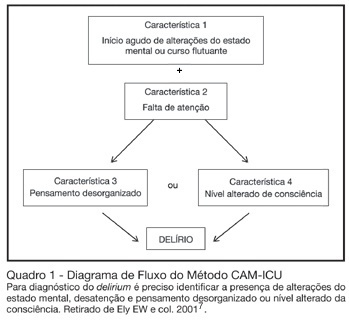
BACKGROUND AND OBJECTIVES: Delirium is a frequent finding in the critically ill patient. Although it is associated with increased morbidity and mortality, it is often not recognized by intensive care doctors. This review will address the main issues regarding delirium in critically ill patients. CONTENTS: Definition, incidence, mortality, risk factors, diagnosis, and treatment of delirium in the critically ill. CONCLUSIONS: Deliriumis defined as a disturbance of consciousness, attention, cognition and perception that occurs frequently in critically ill patients. It occurs in as many as 80% of mechanically ventilated ICU patients. Risk factors for delirium include acute systemic illnesses, older age, pre-existing cognitive impairment, sleep deprivation, and medications with anticholinergic activity. Although new assessment tools are available for rapidly and accurately measuring deliriumin critically ill patients, healthcare professionals still do not regularly monitor for this condition. In recent years, the emphasis in the approach to delirium has shifted to systematic screening and prevention. Haloperidol remains the standard treatment for delirium, but there is some evidence for the efficacy of risperidone.
Search
Search in:


Comments